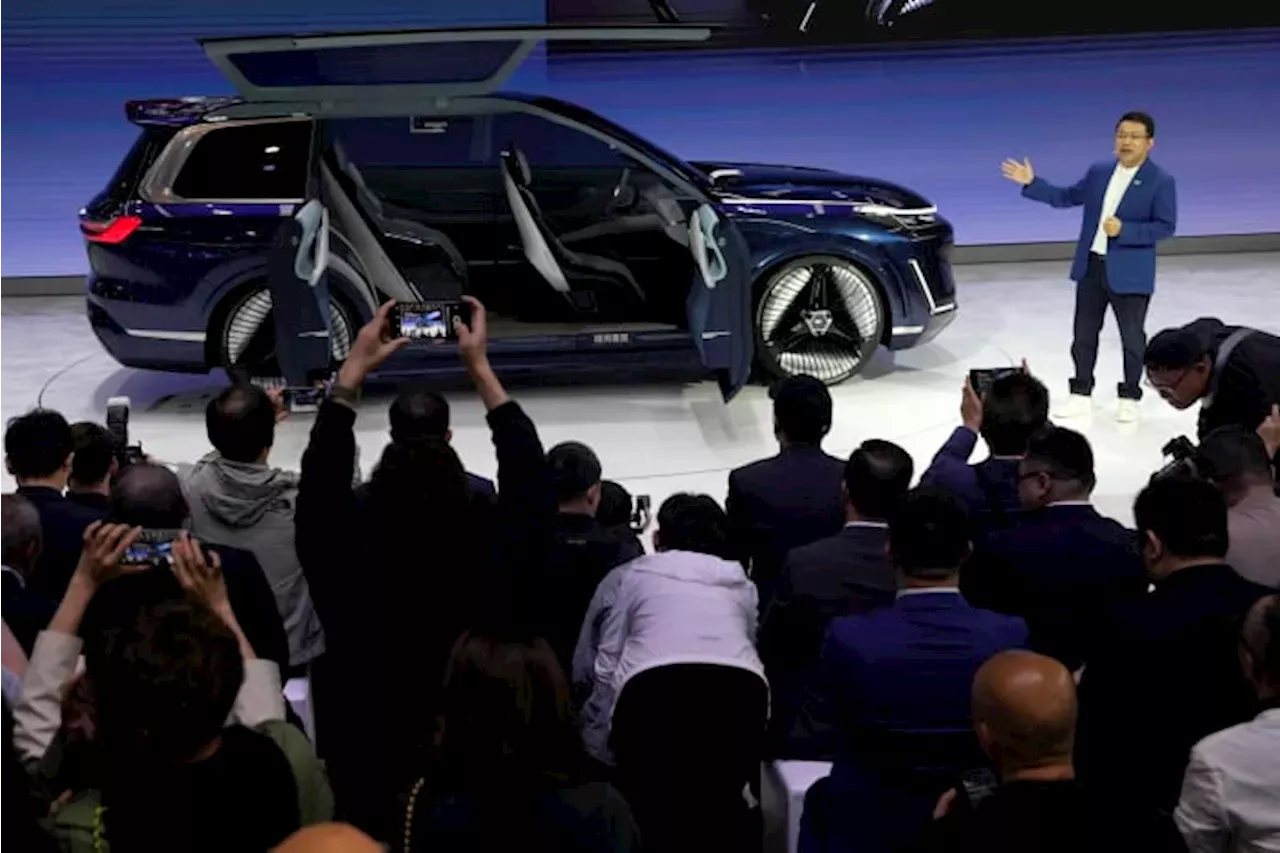BusinessFILE - Jerry Gan, CEO of Geely Auto Group unveils the Galaxy Starship a new technology flagship AI-driven SUV prototype during Auto China 2024 in Beijing, Thursday, April 25, 2024. The European Union threatened on Wednesday, june 12, 2024, to hike tariffs on Chinese electric vehicles, escalating a trade dispute over Beijing's subsidies for the exports that Brussels worries is hurting domestic automakers. made in China.
The planned tariffs are aimed at leveling the playing field by approximating the size of the excess or unfair subsidies available to Chinese carmakers. The commission didn't single out Western auto brands, but mentionedon Chinese EVs to 100% from the current 25% The U.S. currently imports very few Chinese cars, but like the European Commission,The U.S. tariffs block virtually all Chinese EV imports.
The various forms of financial help complicate the EU’s case because it’s difficult to gather data on some of the practices. The EU indicated it selected BYD, Geely and SAIC as a sample to calculate the duties. Other manufacturers in China that cooperated with the investigation but weren't sampled will face extra duties of 21%, while those that didn't cooperate will be hit with the 38.1% rate, the commission said.
Duties at the 15-30% level could “wipe out the business model for foreign players such as BMW and Tesla, which are using China as a base for exporting to Europe,” the Rhodium Group said in a report.China is almost certain to retaliate and to pressure European officials to negotiate. The China Chamber of Commerce to the EU warned that Beijing could raise duties on cars with engines larger than 2.5 liters, a move that could affect German luxury carmakers such as Volkswagen’s Porsche.
Mercedes-Benz, BMW and Volkswagen now make most of the cars they sell in China at factories there. Only 2% of Volkswagen’s China sales are imports and thus vulnerable to higher tariffs; it’s 15% for BMW and 19% for Mercedes-Benz.
